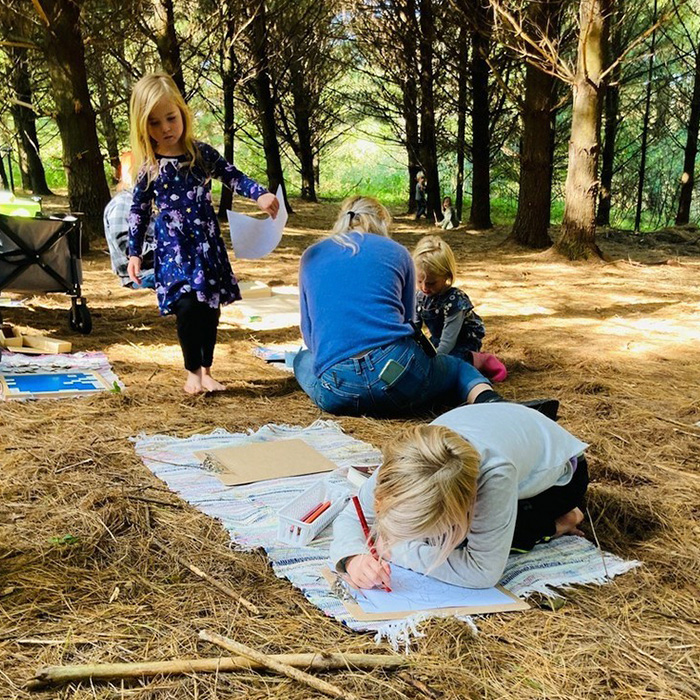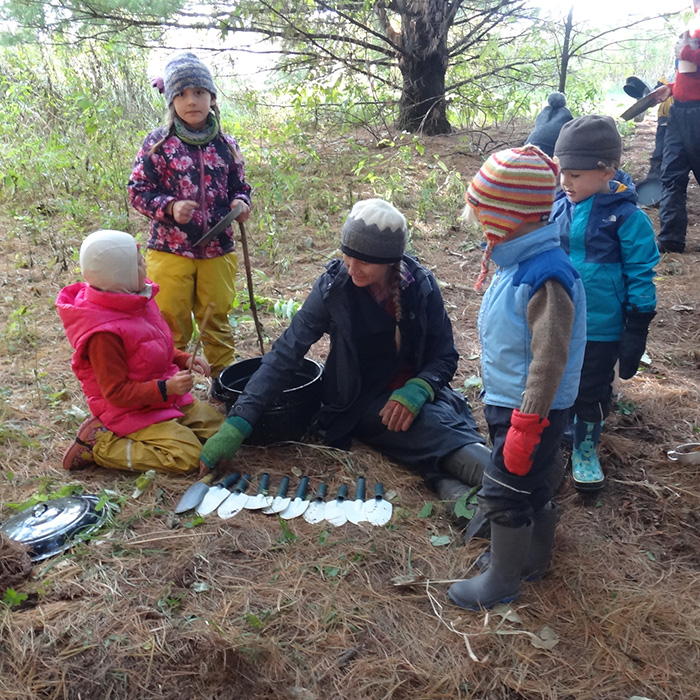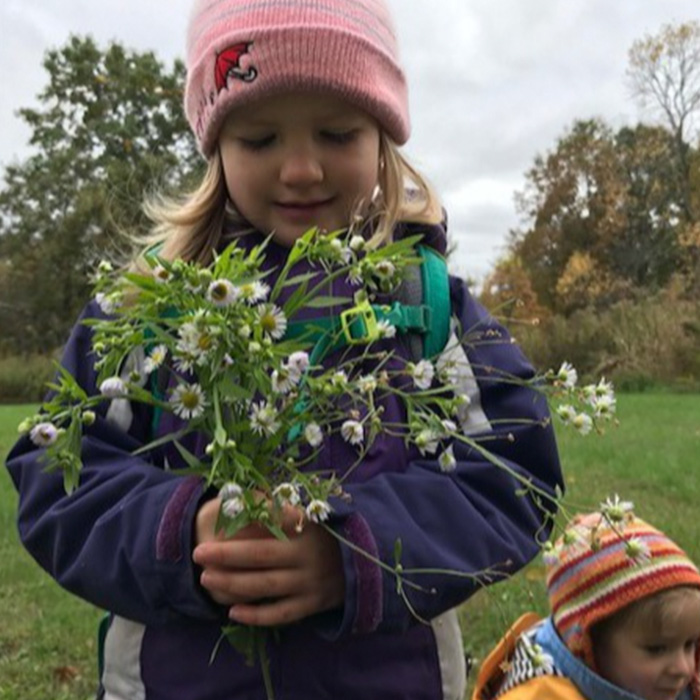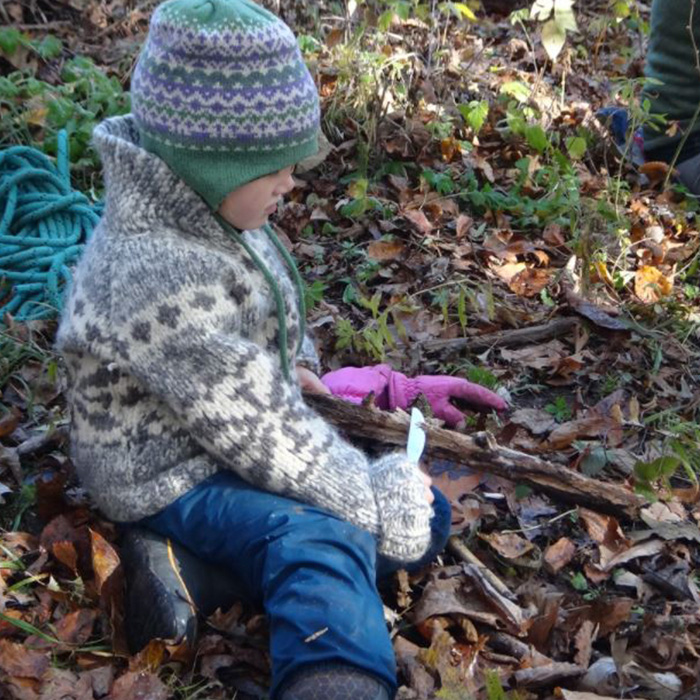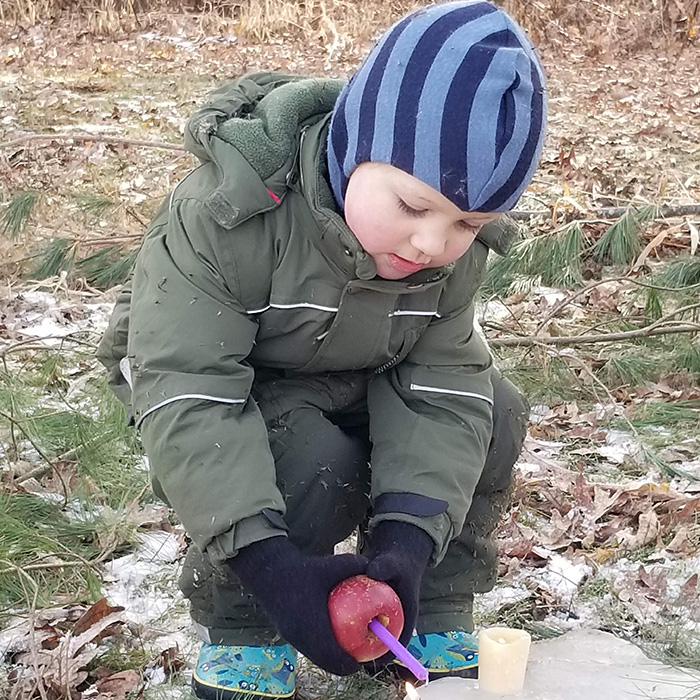success story
Kickapoo Valley Forest School: Forging Connections to the Environment
Understanding and honoring nature
Kickapoo Valley Forest School engages children with nature
Residents of the verdant Kickapoo Valley—part of the Driftless Region, untouched by glaciers—wanted their children to understand and appreciate the natural beauty and resources of the woods and streams around them. They wanted regular outings for youngsters in the environment surrounding them in the Kickapoo Valley Reserve, an 8,600-acre conservation area that offers a wealth of nature to explore. The primarily rural region in southwest Wisconsin also faces socioeconomic challenges and few options for child care.
A charter school is formed, focused on the outdoors
The Kickapoo Valley Reserve has been a champion of education programs, with hands-on environmental programs and activities for people of all ages, throughout the year, with the hope of creating future stewards of the land. As the community called for more opportunities for young children to participate, plans took shape to create a charter school focused on the outdoors as a tool for education.
- The Kickapoo Valley Reserve teamed with the La Farge School District, holding pilot Forest School programs at the reserve, starting around 2015, that grew into half-day (fee-based) Forest School Fridays
- The collaboration grew in late 2019 into the concept of establishing a model forest school. A steering committee was formed and talks began with the Ho-Chunk Nation to explore options for funding, management and logistics
- The Kickapoo Reserve Management Board and the La Farge School Board voted unanimously to create a charter school—the Kickapoo Valley Forest School—on the Kickapoo Valley Reserve
- The Wisconsin Department of Public Instruction awarded the charter school a $700,000 grant in June 2020
Nature’s playground as teacher
The Kickapoo Valley Forest School began classes for 4K and kindergarten students in September 2021. Its motto is “Learning from the outside in,” and the goal is to use nature as a teacher through play and exploration. The full-day, five-days-a-week school enrolls 16 students per class and is tuition-free. The program features daily activities in nature, along with instruction in the more traditional fields of literacy, math, science and social studies. In addition to giving young children exposure to the habitat around them and providing early education, the charter school relieves parents—including lower-income families—of weekday child care concerns.

